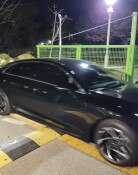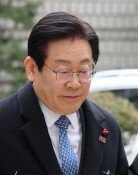Korea, EU Conclude Free Trade Agreement
Korea, EU Conclude Free Trade Agreement
Posted July. 14, 2009 09:13,
President Lee Myung-bak and Swedish Prime Minister Fredrik Reinfeldt yesterday in Stockholm concluded the free trade agreement between Korea and the European Union.
President Lee said after their summit that he expects negotiators to quickly finish the legal scrubbing before initialing the deal. Sweden is the EU chair country under a six-month rotating presidency.
The deal marks the end of 26 months of negotiations between the two sides, allowing negotiators to begin conducting a legal review of an agreement document and promising no changes after initialing it.
A senior Seoul official said that if the negotiators finish the review and initialing, a final agreement will be signed in January or February next year that will take effect before the end of June.
In a weekly radio speech for airing in Korea earlier in the day, President Lee said the agreement with the EU will bring greater changes to Koreas international trade than one with any other economy.
The deal will deliver a significant message against trade protectionism to the global market, he added, expecting the deal to be mutually beneficial in sectors including industrial products, manufacturing, machinery, chemicals and pharmaceuticals.
"Korea will have free trade with countries accounting for more than half of the worlds population once India signs a trade agreement as early as next month and the U.S. ratifies its free trade deal with Korea," he said.
In a Dong-A Ilbo survey of 10 domestic trade experts, they said the result of the Korea-EU agreement was generally good, giving an average of 4.2 points on a scale of five. Two of them gave the full five points and the rest four.
Korean consumers are expected to benefit from the trade accord. Slated for lifting is the 15 percent tariff on EU wine products in the first year of the agreements effectuation, which could lead to a 13-percent drop in wine prices in the domestic market.
The tariff of eight to 13 percent on luxury fashion items imported from the EU will also be abolished immediately. The eight-percent tariff on European passenger vehicles with an engine displacement of 1.5 liters or more will also be lifted three years after effectuation.
It is unclear, however, whether the reduction in tariffs will be fully reflected into price decreases. Many European luxury brands are likely to maintain their high prices as part of brand strategy.







